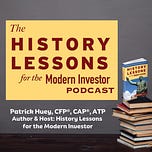On October 31, 1517 – Martin Luther allegedly nailed his 95 Theses to a church door in Wittenberg, Germany, sparking the Protestant Reformation.
Formally titled Disputation on the Power and Efficacy of Indulgences, it was a revolutionary document that sparked the Protestant Reformation. The story behind the 95 Theses begins with Luther's growing disillusionment with certain practices within the Catholic Church, particularly the sale of indulgences, which he saw as a corrupt way for the church to collect money and for individuals to essentially "buy" forgiveness for sins During the early 16th century, the Catholic Church encouraged the sale of indulgences, which were certificates sold to reduce punishment for sins. The funds raised through indulgences were partly used to finance large church projects, including the rebuilding of St. Peter's Basilica in Rome. Johann Tetzel, a Dominican friar and indulgence seller, was particularly aggressive in promoting these sales in Germany, using slogans like "As soon as the coin in the coffer rings, the soul from purgatory springs." Martin Luther, a German monk, theologian, and professor, was increasingly critical of this practice. He believed that indulgences misled the faithful and contradicted the core Christian teachings of repentance and salvation through faith alone. It is widely believed that Luther nailed his theses to the door of the Wittenberg Castle Church in Germany, although historians have debated this detail. The church door served as a sort of public bulletin board for academic discussions, so this would have been a customary method to invite debate. Regardless of how he went about it, Luther’s act set off a chain of events that led to the Protestant Reformation. His ideas also inspired other reformers, like John Calvin and Huldrych Zwingli, who helped establish Protestant movements across Europe.
Martin Luther's life and his role in the Protestant Reformation provide some surprisingly relevant insights into investing and personal finance, especially around values, patience, and adaptability. Here are five key investment thesis for the modern investor:
❶Prioritize Financial Literacy and Education. Luther translated the Bible into German so that ordinary people could understand it and engage directly with its teachings, emphasizing the importance of knowledge. Educate yourself about the fundamentals of investing and financial markets. The more you understand, the better equipped you’ll be to make informed decisions independently or as part of an advisor relationship. Financial literacy can also protect you from potential scams and misinformation.
❷Challenge Conventional Wisdom. Luther questioned established practices, especially the sale of indulgences, and sparked a movement. Similarly, successful investors often think independently and are willing to question market trends or hype. Instead of blindly following market sentiment or investment fads, develop your own investment plan. Or have someone do that for you.
❸Invite debate. Confirmation Bias entails listening to only that which validates what you already believe to be true. If you only look for confirming data, this information will echo endlessly in your head at the expense of an open mind. Read different viewpoints. And beware of social media where giving you more of what you already believe is the whole point, not a design flaw.
❹Write It Down. Planning documents like your investment thesis should be just that: DOCUMENTS. If it is important, put it in writing, which gives you clarity of purpose and will help you focus on the long term when market corrections are bestowed upon you. A well-constructed and written plan creates a habit of discipline and makes it harder to pitch your plans overboard at the first sign of difficulty.
❺Rhyme Isn’t a Reason. Catchy slogans like "As soon as the coin in the coffer rings, the soul from purgatory springs” are examples of the rhyme-as-reason fallacy. We remember things better when they rhyme, but that doesn’t make them true. Yet Dr. Matthew McGlone of Lafayette College found that his students remembered rhymes better and supposed that they were more accurate and truthful than mere prose. For example, “asked whether financial success makes people healthier, almost all McGlone’s subjects disagreed, but ‘wealth makes health’ seemed much more plausible.” Investors are often told to sell in May and go away for the summer and fall months. This is terrible advice for investing and tax planning, and not just this year. Before the invention of the written language, ancient poets relied on our ability to remember rhymes to pass on their stories. Well, thanks for the memories. But maybe it is time for us to forget the rhyme.
#podcast #investing #investmentdecisions #economicdecisions #LessonsFromHistory #HistoryAndFinance #InvestingInHistory #HistoryPodcast #InvestingInsights #MartinLuther95Theses #FinancialHistory #ReformationTalk #InvestingLessons #EconomicRevolution #MoneyAndHistory #ReformationHistory #FaithAndFinance #95Theses #LearnFromHistory #InvestingThroughTime #Reformation500 #HistoricalInvestments #WealthAndWisdom #MoneyMovesInHistory #AncientInvesting #MartinLutherLegacy #PodcastReformation





